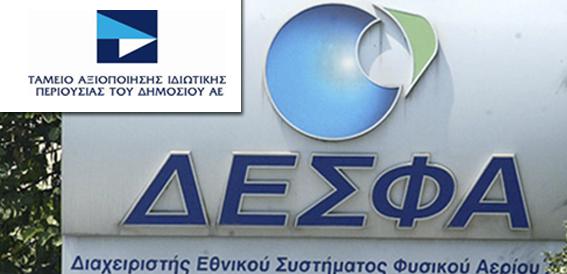TAIPED, the State Privatization Fund, fears the long-running effort to privatize DESFA, Greece’s gas grid operator, could be headed towards a dead end as a result of a number of negative developments.
Besides the problems faced by Azerbaijan’s oil-dependent economy amid the sharp decline in international crude oil prices over the past year and a half, which has affected the financial standing of the country’s state-run energy company Socar – the potential main buyer of DESFA – Belgian company Fluxys, considering a smaller stake, is having serious thoughts about investing in the Greek operator, driven by the country risk factor, sources have informed energypress.
Canadian shareholders holding a stake in Fluxys have appeared increasingly reluctant to commit to any investments connected with Greece as a result of permit issues faced by Canadian gold mining company Eldorado Gold in Greece.
One source has informed that Fluxys is preparing to withdraw its interest in acquiring a 17 percent share of DESFA. The Azeri company Socar, the winning bidder of an international tender offering a 66 percent share of DESFA, must surrender 17 percent following European Commission intervention, which would leave it with 49 percent.
Besides the likely withdrawal of Fluxys, the interest of Italy’s Snam, which has also examined the prospect of acquiring DESFA’s 17 percent stake, is also in doubt. Snam officials were absent from a delegation of Italian energy officials that accompanied Italian foreign minister Paolo Gentiloni on a trip to Athens slightly less than a month ago.
A pending revision to gas network usage fees, the only source of income for DESFA, is also troubling investors. Based on existing regulations, these fees were headed for a significant increase before energy minister Panos Skourletis intervened to avoid sharp natural gas price hikes for households and businesses.
Consulting firms hired by Fluxys and Snam to assess the prospect of investing in DESFA have apparently provided negative reports to their clients, basing their advice on the country risk factor.





